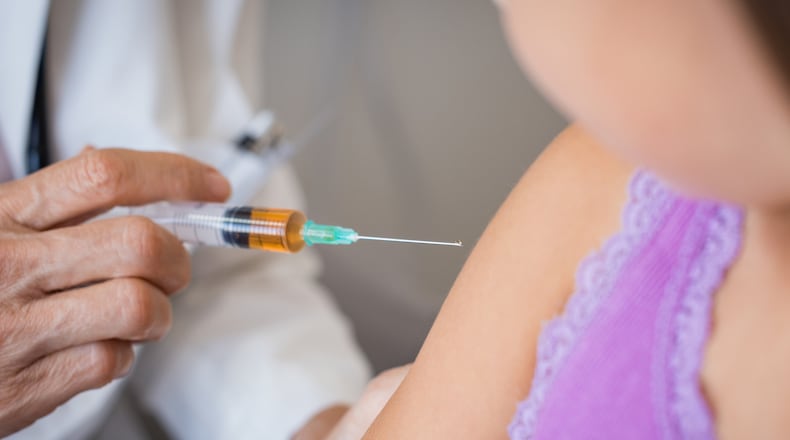For the second year in a row, the Centers for Disease Control is telling doctors not to give patients FluMist, the nasal spray flu vaccine, and that’s a problem for kids and adults who are scared of needles.
Kids’ reactions to shots may range from a mild anxiety to a full-blown meltdown, say area pediatricians. How many kids experience a fear of shots at some time in their lives? “100 percent,” said Mike Steiner, the division chief of general pediatrics and adolescent medicine at UNC Health Care.
“At some age, every kid has a fear of getting a shot,” Steiner said. “It’s basically a universal experience.”
And if the fear is not resolved it can turn into a problem for them as adults, causing them to avoid medical services over fear of injections.
“This may be a good time to deal with and navigate through this,” said Ravi Jhaveri, a pediatric infectious disease specialist with UNC Children’s Hospital. “Needles are a fact of life, whether for a vaccine or a blood test.”
So if you have a kid who runs, faints or puts up their fists at the sight — or thought — of a needle, how do you deal with it?
Here are some suggestions from area doctors.
1. Ask your doctor about a new needle-free vaccine available for children as young as 5 years old. The vaccine, called Afluria, is administered under high pressure directly through the patient’s skin. In September, it was approved for children age 5 and up. The most common side effects are tenderness, itching and bruising.
2. There are ways to minimize the physical sensation of a hypodermic needle. Ask your doctor or nurse to use numbing creams, lidocaine patches and ethyl chloride spray. Another technique is to press the thumb firmly into the child’s arm, producing a temporary soreness than can mask the sensation of the flu shot.
3. If your child is truly needle-phobic, talk to your doctor about whether anti-anxiety medication is needed.
4. If your child is simply anxious, try distractions: play games, ask questions, tell stories, sing songs, blow bubbles, show a movie or a cellphone video. Pre-schoolers can be caressed in a parent’s arms and comforted gently.
5. Don’t shame or humiliate. Acknowledge the fear as genuine and help your child work through it, even if it requires seeing a therapist. Most people do not have an insurmountable phobia, but many have an instinctive aversion to foreign objects entering the body.
6. Don’t lie to your child that the doctor’s visit won’t involve a shot or that that the shot will be absolutely painless. Dishonesty and trickery could exacerbate your child’s fear and distrust.
7. Don’t be afraid to abandon ship. “I’ve had parents decide not to give it if the child is really fearful or upset at the appointment, but I haven’t ever had to cancel the vaccine if the parents are OK with us trying,” pediatrician Sophie Shaikh with Duke Children’s Primary Care in Brier Creek, wrote in an email. “For something that is recommended but considered more optional, such as the flu vaccine, we will take our lead from the parent. We obviously want to avoid traumatizing a child!”
And don’t give up hope. More solutions could be on the way.
Steiner said that last month, at the annual conference of the American Academy of Pediatrics, he saw a vendor promoting virtual reality goggles as an emerging tactic to calm jittery kids during shots.
Researchers at Georgia Tech are working on a Band-Aid like patch with dissolvable microneedles that deliver the flu vaccine. The testing is in early stages yet, but a clinical trial at Emory University found the vaccine was just as effective as the traditional needle and syringe and was well-tolerated by test participants. One tester told NBC News it was like pressing down on the hard size of Velcro.
About the Author
Keep Reading
The Latest
Featured


